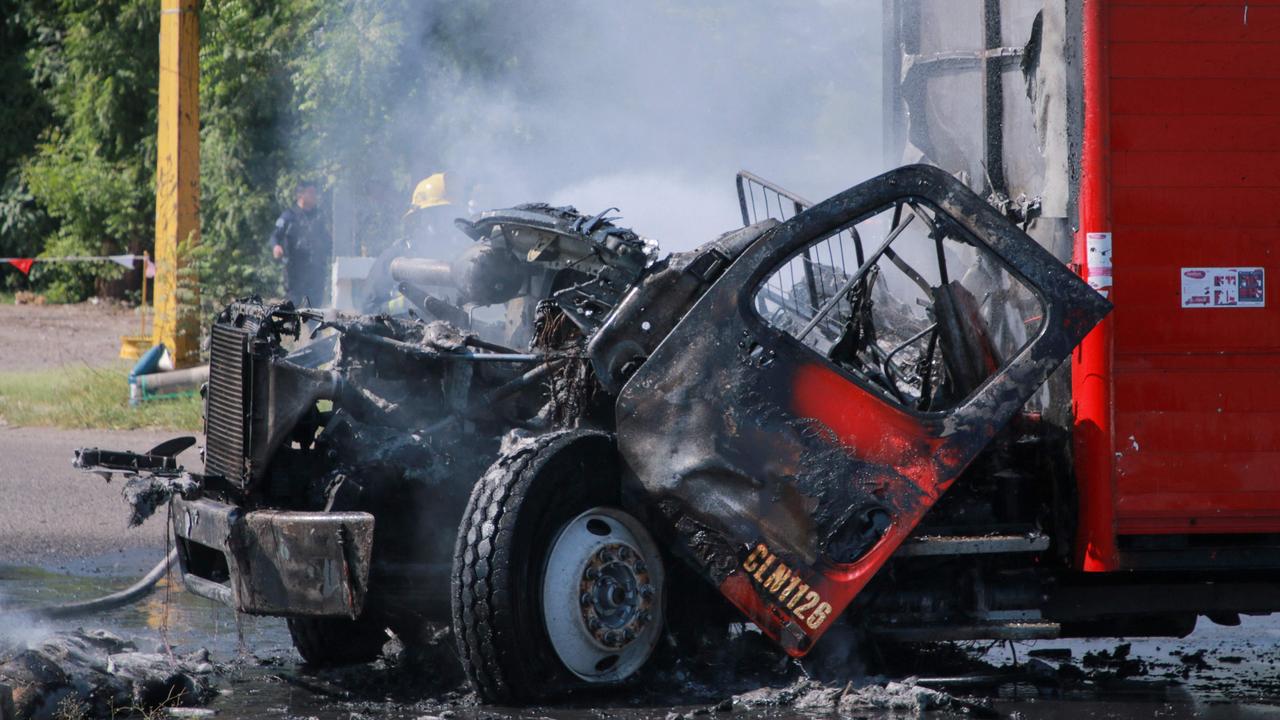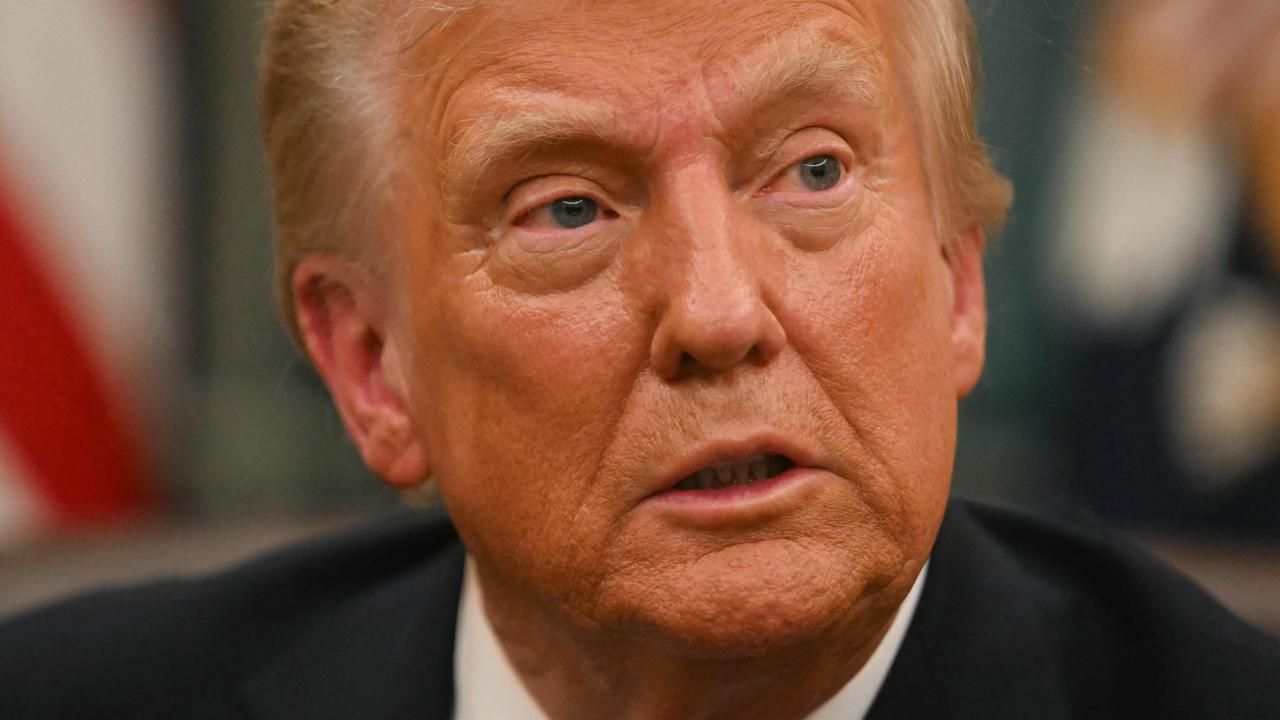‘We are next’: War fears engulf Europe
A chorus of alarm is sounding out across the continent as a re-energised Russia looks set to accelerate its war with Ukraine.
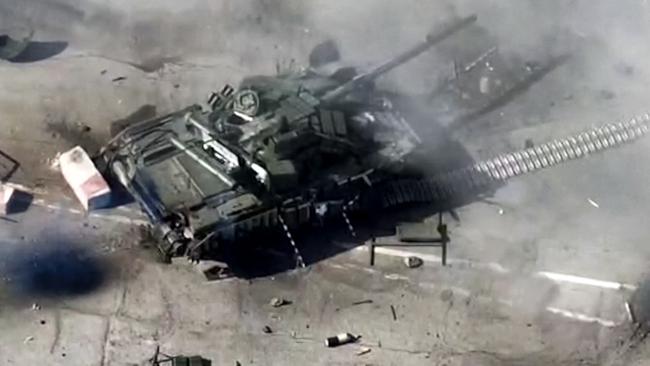
Innovation
Don't miss out on the headlines from Innovation. Followed categories will be added to My News.
“If we do not get the European Union’s response right and do not give Ukraine enough support to stop Russia – we are next.”
The President of the European Council, Charles Michel, has added his powerful voice to the chorus of alarm sounding out across the continent as a re-energised Russia turns the tables on a Ukraine starved of ammunition and international support.
“We can no longer count on others or be at the mercy of election cycles in the US or elsewhere,” the top official wrote in a letter issued to European newspapers Wednesday. “If we want peace, we must prepare for war.”
The call to action has been met with relief from some of Europe’s newest – and smallest – members.
Latvia, Lithuania, Poland and Estonia were seized by the former Soviet Union in 1940, before Nazi Germany launched its surprise drive on Moscow in 1941. The 1939 Molotov-Ribbentrop Pact between Joseph Stalin and Adolf Hitler divided Eastern Europe between them and promised neither would attack the other.
“It is now clear that Russia will not stop in Ukraine, just as it did not stop in Crimea ten years ago,” Michel writes, adding: “Russia continues its destabilising tactics — in Moldova, Georgia, the South Caucasus, the Western Balkans and even further afield on the African continent.”
It’s a warning East European nations have been shouting for decades.
“Now it seems like Europe understands this is Europe’s problem,” Lithuania’s prime minister Ingrida Šimonytė said earlier this month. “If Putin is not stopped in Ukraine, then whatever happens next is Europe’s problem at large.”
“We should have listened”
“We should have listened to the voices inside our union – in Poland, in the Baltics, and all across central and eastern Europe,” EU Commission president Ursula von der Leyen conceded during her 2022 State of the Union address immediately after the invasion of Ukraine.
Two years later, there’s some sign that this is beginning to happen.
French President Emmanuel Macron has previously argued his Ukrainian counterpart – President Volodymyr Zelensky – should surrender his nation’s eastern provinces to Putin in exchange for peace.
But his government’s appetite for appeasement appears to have evaporated.

On Tuesday, France’s leading military officer, General Pierre Schill, published a letter in his country’s leading daily newspaper, Le Monde, claiming he was “ready” to deploy 20,000 troops with just 30 days’ notice. A further 40,000 troops from EU forces were ready to follow, he added.
“The sources of crisis are multiplying and carry with them risks of spiralling or extending,” he wrote, without naming Ukraine specifically. “If you want peace, prepare for war.”
His comments come after President Macron abruptly suggested in late February that NATO should prepare to send ground troops into Ukraine.
NATO’s largest members – including the US and Germany – immediately opposed the idea. But the more vulnerable Estonia, Latvia, Lithuania and Poland expressed their support for Macron “thinking outside the box”.
Macron repeated the call last week, insisting “the security of Europe and the security of the French people is at stake here.”
“If war was to spread to Europe, it would be Russia’s sole choice and sole responsibility,” he told French TV. “But for us to decide today to be weak, to decide today that we would not respond, is being defeated already. And I don’t want that.”
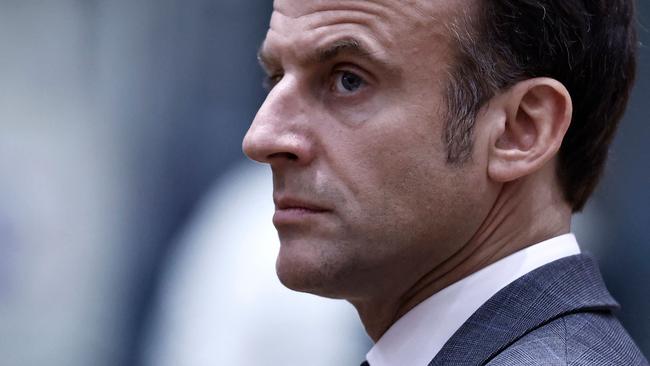
“We are next”
The Kremlin has managed to put its economy on a war footing, dramatically boosting the production of arms and ammunition to support the tens of thousands of conscripts it is rushing to the front lines inside Ukraine.
Moscow has also found new markets for its oil and produce in Beijing and New Delhi to dodge Western sanctions following the February 2022 invasion.
But Washington’s aid for the embattled young democracy in Kyiv has fallen foul of Washington DC’s hyperpartisan politics. That and steadily increasing support from China’s Chairman Xi Jinping has left Putin feeling enabled.
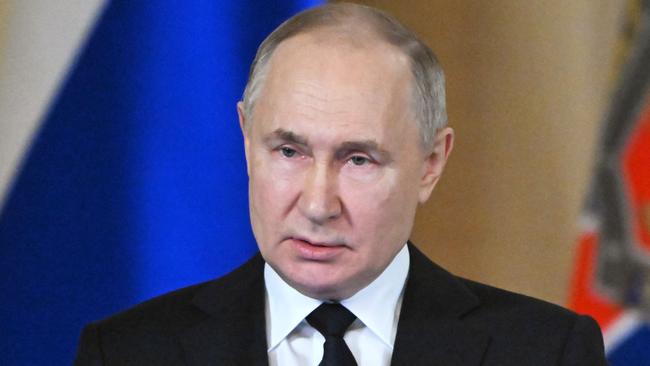
“Everything is possible in the modern world,” he said of war with Europe in his post-election speech at the weekend. “(This) will be one step away from a full-scale third world war”.
It’s not a new message from the Russian dictator. What is new is Europe’s willingness to listen.
“We can no longer count on others or be at the mercy of election cycles in the US or elsewhere,” EU Commission president Michel writes.
“If we do not get the EU’s response right, and do not give Ukraine enough support to stop Russia, we are next.”
During the Munich conference I was asked why I am so gloomy. Well, somebody has to tell it like it is, so here’s how it is: Things are not going well. 🧵 pic.twitter.com/NPu3y9SnP3
— Gabrielius Landsbergis🇱🇹 (@GLandsbergis) February 18, 2024
Lithuania sounded the alarm as early as 2008. The tiny Baltic country’s first president following the collapse of the USSR, Vytautas Landsbergis, warned Putin’s then invasion of Georgia was just the first step: “It is not the situation in Georgia only; it is a very bad situation in Europe, and for Europe’s future. Who is next after Georgia? The next is Ukraine!”
The EU, however, encouraged Georgia to sign a ceasefire that essentially handed Putin control over 20 per cent of that nation’s territory.
A similar response was seen in 2014 when Moscow first invaded Ukraine by seizing the peninsula of Crimea. The EU initiated some sanctions, but pushed ahead with plans to dramatically expand its access to Russian oil and gas supplies.
Europe’s easternmost members – themselves under relentless diplomatic and espionage attacks from Moscow – were dismayed.
Then, in 2022, Putin launched his “three-day” invasion of Ukraine.
“Western Europe still does not view Eastern Europe and the Baltics as equal partners,” writes Bocconi University policy researcher Viktoriia Lapa in The Conversation. “As a result, the EU – dominated by the West – still doesn’t truly perceive Russia as a direct threat to European security.”
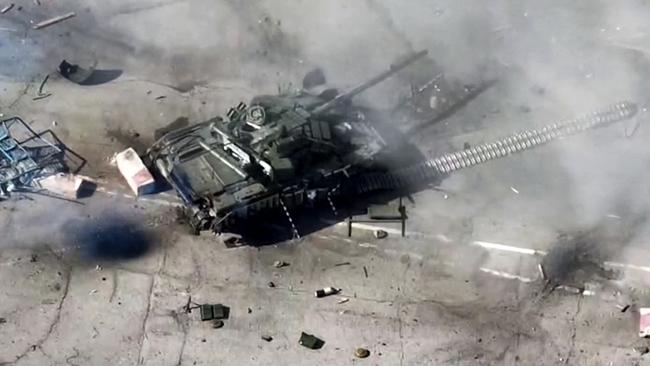
Can Europe defend itself?
“We don’t lack capacity. We lack the political will and urgency necessary to support Ukraine and maintain our collective security,” Lithuanian foreign minister Gabrielius Landsbergis told the Munich Security Conference in February.
“Russia, on the other hand, has the will to destroy Ukraine and re-establish the Russian Empire. When will we start using our capacity to deter this?”
European Commission president Michel took up the call for Europe to “shift to a war economy mode” on Wednesday.
“For decades, Europe has not invested enough in our security and defence,” the former Belgian prime minister wrote.
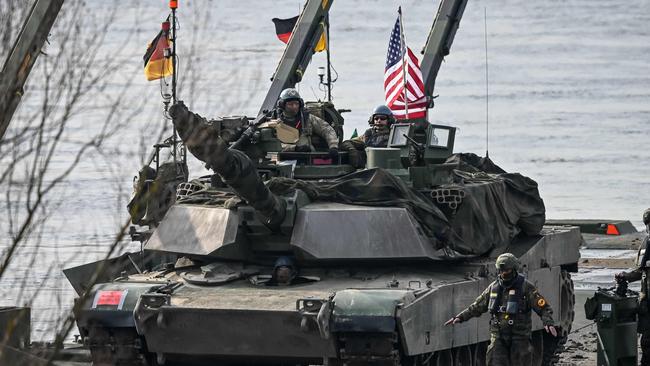
That’s been a source of contention within the NATO alliance in recent years. US Presidential aspirant Donald Trump has threatened to let Putin “do as he pleases” in Europe if it doesn’t spend more on US military equipment and boost average defence budgets to at least 2 per cent.
“Today we face the biggest security challenge since the Second World War, so we must build our defence readiness,” says Michel. “This will take a radical and irreversible shift in our thinking towards a strategic security mindset.”
He says Europe has begun to respond by ramping up production of arms and ammunition by 50 per cent to help supply Ukraine. But, echoing decades of Australia’s confused defence procurement policies, he warns “we must … spend more, smarter and in a less fragmented manner.”
“We should aim to double what we buy from European industry by 2030,” he adds. “This will give more predictability to our companies. Multiyear contracts will also incentivise them to ramp up their production capacity. This will strengthen our defence industry, enhance defence readiness, and also create jobs, and growth across the EU.”
Jamie Seidel is a freelance writer | @JamieSeidel
Originally published as ‘We are next’: War fears engulf Europe




